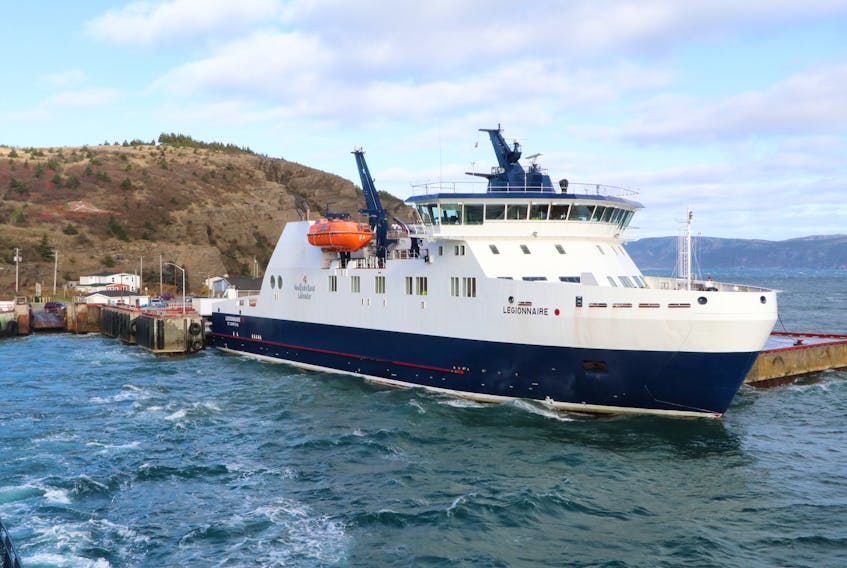An article in The Telegram last year pointed out, “For years ferry users on the Bell Island ferry service could remain in their vehicles during crossings but that changed last summer when the new Legionnaire came into service, and a new policy was implemented.” (“Bell Island ferry woes continue,” Glen Whiffen, July 03, 2018)
To those unfamiliar with the Bell Island ferry, requiring passengers to vacate their vehicles during the 20-minute crossing might seem a common sense safety precaution, and for the majority of healthy, able-bodied commuters, this is true. However, for sick or disabled passengers, this new policy created life-threatening safety issues.
One woman with both medical and mobility issues travelled safely for 34 years without an incident. In the less than two years since the new policy has been implemented, she has had three accidents, one of which came within a coin flip of being fatal — had she struck her head on the left side, instead of the right, she almost certainly would have died.
There are many other cases of vulnerable passengers being endangered by this change in policy.
The ferry crew are also at risk, as they are neither trained in rendering assistance, nor insured if something they do causes injury.
In 2018, Transportation and Works commissioned an independent study, ostensibly to assess “hazards and risks to passengers who remained in their vehicles compared to passengers who vacated their vehicles while the ferries were in transit.” This study (Risk Assessment for Bell Island Ferry Service; Technical Report # TR-18-34, Rev 01), was released in May 2018.
I am an experienced risk-management consultant with over 20 years of experience conducting such assessments. I am also a resident of Bell Island, as is my long-time research assistant, Carol Lorimer. It was immediately clear to both of us that this study did not address the issues that it was expected to address.
Risk-assessment consultants must consider all relevant risks, and not focus only on the risks that they are familiar with. The government study looked at sinking, fire, explosions, collisions, and grounding, but it treated all passengers the same, ignoring hazards that are specific to sick or disabled passengers. It considered only two options: one in which everyone, regardless of medical status, is forced to leave their vehicles before the vessel leaves the dock, and another in which everyone is permitted to remain in the vehicle throughout the crossing.
An obvious third option, allowing only vulnerable passengers and their caregivers to remain in their vehicles, was not even considered.
After consulting with doctors, hospital staff and paramedics on Bell Island, we prepared a rebuttal to the government report. In November, we and other interested parties, including the Mayor of Wabana, our MHA the Honourable David Brazil, and the father of the young woman who nearly died, met with Transportation Minister Steve Crocker and Assistant Deputy Minister John Baker to present our case. ADM Baker insisted that the policy was in place to keep the travelling public safe; I responded that you don’t keep people safe by killing them, which the new policy has nearly done on at least one occasion.
Since then, we have heard nothing from the minister’s office except that he is aware of and shares our concerns. While he delays, sick and disabled passengers continue to be put at risk every day.
It appears that bureaucrats in the Department of Transportation and Works are more concerned with potential legal liability than they are with the safety of sick and disabled Newfoundlanders who rely on the ferry service for hospital visits and medical appointments, including debilitating treatments such as chemotherapy, radiation, and dialysis.
When will the minister stop procrastinating and make a decision? Or is this a case of “if I can just wait long enough, there will be a cabinet shuffle and it will become somebody else’s problem”?
In the meantime, how many Bell Islanders will die, and how many more will be seriously injured because of the department’s so-called commitment to their “safety”?
William R. Lorimer
Bell Island
Related stories:









